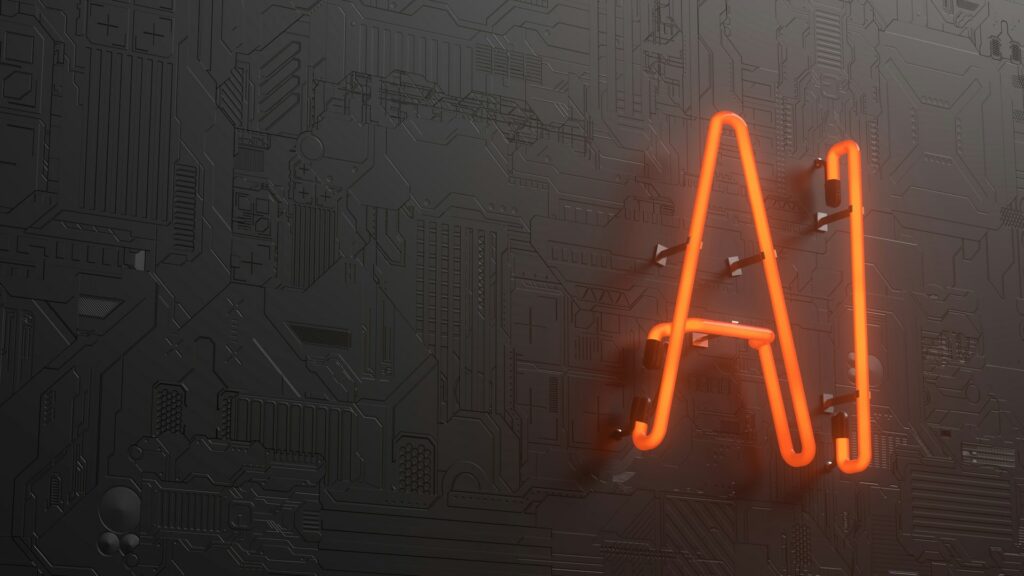Here is what happened when I let AI to plan my week.

Here is what happened when I let AI to plan my week.
It’s no secret that I’m not the most organized person in the world. There are times when my days seem to blur into one another, and they are full of duties that are only partially completed, impromptu plans, and an ongoing sense that I am either doing too much or not enough. After learning about artificial intelligence (AI) technologies that may assist me in managing my time, organizing my priorities, and even scheduling breaks, I made the decision to do an experiment: what would happen if I let AI to arrange my whole week?
The use of a digital calendar or the scheduling of reminders was not the only thing involved here. I wanted to give up control of the vehicle. Don’t make any assumptions. Don’t make any last-minute changes. I informed an artificial intelligence assistant that it was in charge of my routines, to-do lists, personal preferences, and job deadlines, and I allowed it access to such information.
For the next week, the following is a rundown of what transpired. A spoiler alert: it was shockingly eye-opening, somewhat annoying, and strangely liberating all at the same time.
On the first day, a reluctant surrender
Upon opening my artificial intelligence assistant on Monday morning, which was driven by a combination of ChatGPT, Google Calendar, and a smart scheduling engine, I saw that it had already developed a plan for the whole day. Take a stroll in the morning. It’s coffee. The work block is deep. Meal served at 12:00. Remember to give my mother a call. There will be a break at three o’clock. This evening’s reading. Stretching for even ten minutes after sitting for two hours is sufficient.
It had a mechanical quality at first. Lacking in structure. However, I made the decision to adhere to it in every detail, simply to see what would occur.
I had completed practically everything by the time the day came to a close, which was a peculiar occurrence. There is no anxiety. There is no disorder. It had a pleasant sensation. In spite of this, I was not yet persuaded. Perhaps it was simply a Monday that went well.
Day Two: The Artificial Intelligence Takes Notice “My Vitality”
The day of Tuesday was unique. I had a horrible night’s sleep the night before, and the assistant saw that I was moving more slowly than usual because of my use of my phone, my heart rate (which was linked via a wearable), and my delayed replies to tasks. As a result, it did not force me into a morning of high productivity but rather adjusted itself. It was suggested that I take a twenty-minute sleep after lunch, that I transfer creative activity to the afternoon, and that I start the day with a short reading session.
This is not anything that I requested it to do. Just now, it did.
To tell you the truth, it was a bit unsettling to think that a non-human being might have noticed my human exhaustion and adjusted to it in real time. But it is also reassuring. As if someone (or something) was looking out for me, I had the sensation that I was being supported.
I didn’t realize I needed the push that I got on day three.
Wednesday is often the day when I begin to exhibit signs of fatigue. My tendency is to give in to distractions. However, the artificial intelligence had successfully shut out two significant periods of attention by using a series of subtle techniques. These included turning off alerts, playing ambient music at a level of seventy percent, and proposing that I go to a new area (a nearby café).
On my own, I would not have been able to do it.
As the day came to a close, I had accomplished more work than I normally do over the whole week. My assistant even became aware of the increase in the amount of time I spent in front of a computer in the afternoon and reminded me to go for a brief stroll outdoors. I’m not trying to be annoying; I’m simply giving you a little nudge: “Too much screen? Have a little bit of air.”
I couldn’t help but giggle at it. However, I do pay attention.
Fourth day: a little bit too scripted
Thursday was the day when the honeymoon began to wear off. My goal was to completely disregard the timetable, eat something that I had not planned on eating, watch a movie, and just be spontaneous. Without a doubt, the AI was also prepared for such scenario. Even while it introduced “free time” and “open blocks” to the evening, it still had a curated feel to it and was not chaotic in the sense that I sometimes have a preference for.
Despite the fact that artificial intelligence has the potential to improve both productivity and well-being, I started to get the impression that it struggled with the complexity that comes with being human. It was incapable of comprehending boredom. On the other hand, the peculiar pleasure of doing nothing at all. Even though it was a smart cage, there were moments when structure would seem like a cage.
The Unexpected Discovery Made on the Fifth Day
On Friday, a surprise was presented. I had informed the assistant that I wanted to acquire new knowledge on a weekly basis, and as a result, it arranged a session for “curiosity time” at five o’clock in the afternoon. I was on the verge of skipping it, but I’m happy I didn’t.
It had discovered a video series that was specifically geared toward my interests, and it was about philosophy and curiosity in the digital era. Even though I was sipping tea, I watched it. It prompted thoughts that I hadn’t had in an entire week. That evening, I decided to write in my journal for the very first time in a very long time. I did not do so because it was required of me, but rather because I wanted to.
The realization dawned on me at that moment: the artificial intelligence was not going to take my place. It was bringing me back to remember who I am.
Weekend: Striking a Balance, Not Just Being Busy
On Saturday and Sunday, there were not a lot of jobs to do. The artificial intelligence was aware that slumber was also productive. The plan called for a leisurely morning, a stroll in the woods, time for cooking (which is my preferred method of relieving stress), and time to socialize in the evening.
There was more to it than just doing more. Having the proper energy, doing the right things at the right time, and doing the right things were all important.
To my surprise, I did not dread the evening of Sunday. Having caught up, I felt peaceful, and I even felt a little bit interested to see what the next week had in store for me.
What I Discovered After Allowing Artificial Intelligence to Take Control
Letting artificial intelligence plan During the course of my week, I did not give up control. In situations when I am feeling overwhelmed, it was about working together with something that is more intelligent, more calm, and more objective than I am normally. This prompted me to take a break. to be in motion. so as to concentrate. to take a breath. There were times when it was incorrect, but overall, it was far more accurate than I had anticipated.
I did, in fact, miss a little bit of messiness. The ability to watch a series in its entirety at two in the morning or to make impromptu arrangements for coffee without having to worry about them being scheduled into a calendar. I also came to the realization that I often waste energy by pondering what I should do next or by feeling bad about the things that I did not do.
Those frictions were eliminated by the AI. It gave my week a sense of rhythm, and to my surprise, it left a lot of space for pleasure.
Would I Participate in It Once More?
In a word, yes. As long as there are limits.
It is not possible for AI planning to take the role of intuition or emotion. But it is a strong instrument that may assist us in living our lives with greater purpose. It opened my eyes to the fact that increasing job load is not the only way to increase productivity. Discovering a rhythm that is not just supportive of what you do but also of who you are is the goal here.
By allowing AI to manage my week, I was able to feel more present, more focused, and, strangely, more human.
Maybe the actual future isn’t artificial intelligence handling everything for us; rather, it’s AI making our lives a little bit easier.






